Politics
Rivers State House of Assembly Bars Governor Fubara from Presenting Budget
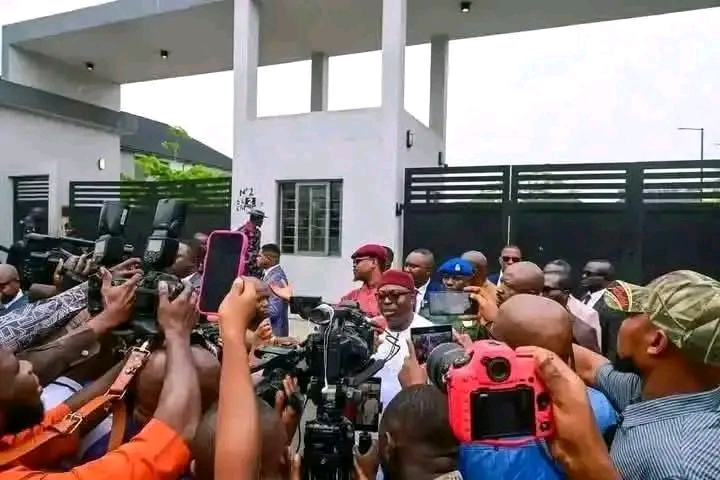
By Our Correspondent
Port Harcourt, Rivers State – The political crisis in Rivers State took a dramatic turn as the State House of Assembly barred Governor Siminalayi Fubara from entering the Assembly complex to present the 2025 budget proposal.
The decision, which was announced on Tuesday, follows months of intense political tension between the governor and lawmakers loyal to his predecessor, Nyesom Wike, who is now the Minister of the Federal Capital Territory (FCT)
The lawmakers, led by Speaker Martin Amaewhule, cited “constitutional breaches” and “lack of transparency” in the governor’s financial dealings as reasons for their decision.
Assembly Locks Out Governor
Governor Fubara, who had arrived at the Assembly premises with members of his cabinet and security aides, was denied entry by heavily armed security operatives.
The Speaker and other legislators had reportedly convened an emergency session earlier in the day, during which they passed a resolution preventing the governor from accessing the chamber.
Sources within the Assembly disclosed that the lawmakers accused the governor of failing to properly consult with them on key financial matters, including the implementation of the 2024 budget. They further alleged that Governor Fubara had sidelined the legislature in critical governance decisions.
Political Rift Deepens
This development marks a significant escalation in the power struggle between Governor Fubara and lawmakers aligned with Wike.
The rift, which began in late 2023, has seen multiple defections, court cases, and accusations of constitutional violations from both camps.
Political analysts believe that the standoff could lead to a constitutional crisis in the state, as the budget presentation is a crucial step in ensuring continued government operations.
With the legislature refusing to grant the governor an audience, questions arise about how the administration will secure funding for projects and salaries in the coming fiscal year.
Reactions and Next Steps
Reacting to the incident, a senior government official close to Governor Fubara described the lawmakers’ actions as a “deliberate sabotage” aimed at crippling the administration. “This is nothing but a political witch-hunt.
The law requires that the governor presents the budget, and any attempt to block him is unconstitutional,” the official said.
Meanwhile, opposition parties and civil society organizations have called for calm and urged both sides to resolve their differences through dialogue.
Some legal experts have also suggested that Governor Fubara could explore alternative means, such as presenting the budget virtually or through an executive proclamation.
As the situation unfolds, all eyes are on Rivers State to see how the governor will navigate this political roadblock and whether the crisis will further escalate in the coming days.
Politics
Democracy Not for Sale Ralph Nwosu: Former ADC Chairman I Chose Nigeria Over ₦10bn, Three Ministerial Positions
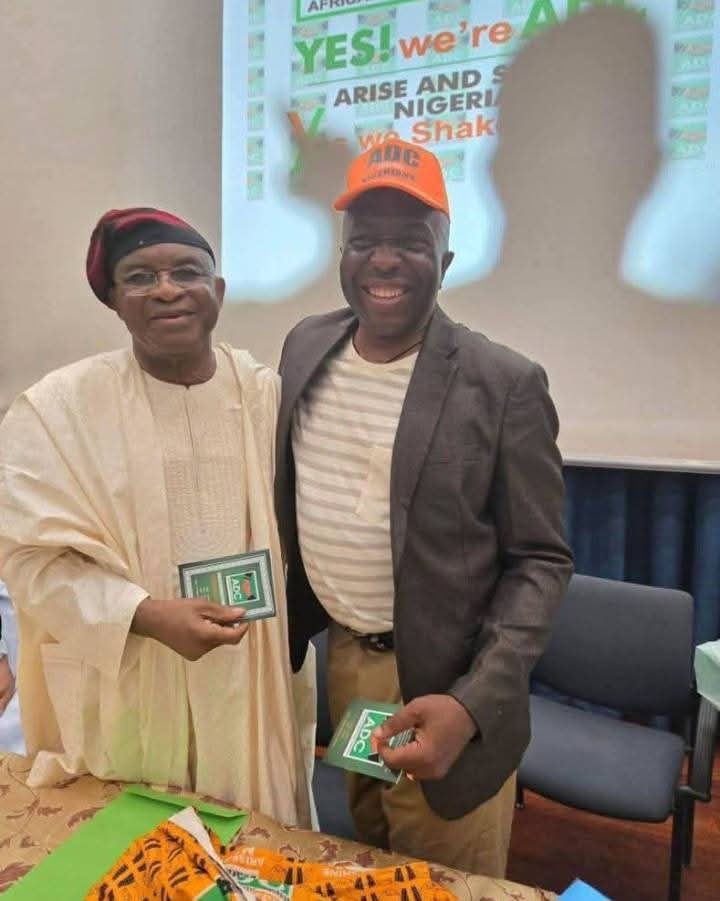
By Our Correspondent
In a dramatic revelation that has sparked national conversation, the immediate past National Chairman of the African Democratic Congress (ADC), Chief Ralph Okey Nwosu, has disclosed that he turned down lucrative offers—including three ministerial slots and a staggering ₦10 billion—in exchange for halting the party’s role as the principal opposition coalition platform in the country.
Addressing newsmen in Abuja on Wednesday, Nwosu stated that despite pressure from powerful political figures and close associates, he made the “difficult but patriotic decision” to prioritize Nigeria’s democratic stability over personal gain.
“I do not want Nigeria to become a one-party state. Even though I was advised by people close to me not to give up my position as National Chairman, I chose Nigeria first,” Nwosu declared.
The former chairman, who led the ADC for over a decade, is credited with transforming the party into a credible third force in Nigerian politics. Under his leadership, the ADC became a strategic platform for a coalition of opposition parties and civil society groups seeking to challenge the dominance of the ruling party.
According to Nwosu, the offer to step down the coalition move came at a critical time when democratic principles in Nigeria were being tested. He described the attempted inducement as part of a larger effort to weaken the country’s multiparty system.
“Today, I am happy as a fulfilled man who is paying the price for a better Nigeria,” he added, visibly emotional.
The Coalition for ADC, a growing alliance of pro-democracy movements, political parties, and stakeholders, has since commended Nwosu for his integrity and sacrifice. Many see his decision as a bold stand against corruption and political manipulation.
Political observers believe Nwosu’s stance has not only preserved the credibility of the ADC but has also inspired a renewed push for a more vibrant and united opposition in the country.
Reactions have begun to pour in from political analysts, civil society groups, and party leaders, with many hailing Nwosu’s action as “historic” and “courageous,” especially in a climate where political compromises are often influenced by personal benefit.
With the 2027 general elections on the horizon, Nwosu’s revelation is expected to energize coalition efforts and encourage broader participation from disenchanted Nigerians seeking credible alternatives.
Politics
I’m Not Running in 2027 Engineer Aliyu Kombat-My Mission Goes Beyond Politics
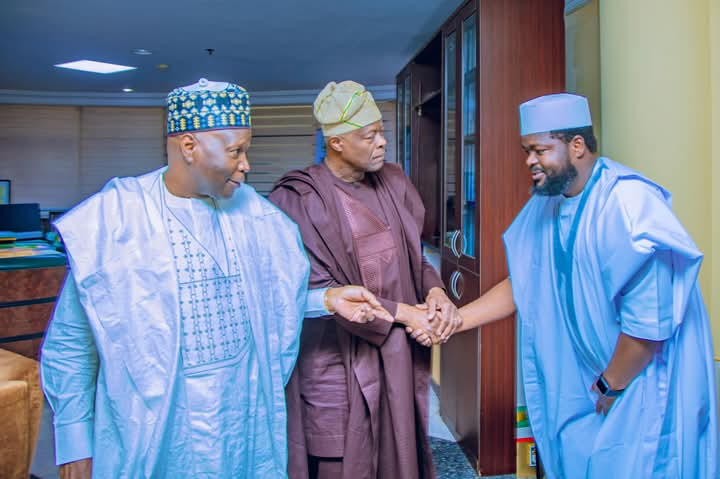
By Our Correspondent
In a heartfelt and reflective press statement released Monday, renowned philanthropist and political figure, Engineer Aliyu Muhammad Kombat, has formally announced his decision not to contest in the 2027 General Elections, despite widespread calls and public encouragement urging him to do so.
Opening his statement with deep gratitude to Almighty Allah and the people of Gombe State, Kombat expressed appreciation for the unwavering support he has received over the years, calling it a “constant source of strength and inspiration.”
“I remain deeply humbled and eternally grateful for the love you have shown me through your words, actions, and persistent belief in my capacity to serve,” he said.
After what he described as “deep reflection and wide consultations with my family, mentors, elders, political allies, and trusted friends,” Kombat revealed that the decision to step aside from the 2027 political contest was not made lightly.
“I acknowledge your disappointment, and I ask for your understanding and prayers,” he said, in a direct appeal to supporters who had anticipated his candidacy.
While stepping back from the electoral race, Kombat made it clear that he remains loyal to the All Progressives Congress (APC) and pledged full support toward the party’s continued growth at all levels.
“I remain firmly committed to the ideals of my party, the APC, and I pledge my total support for the continuous progress of the party at all levels,” he affirmed.
Kombat, who is also the founder of the Velocity Humanitarian Foundation, reassured the public that his withdrawal from electoral politics will not in any way affect the Foundation’s operations.
“That noble initiative remains alive, active, and fully committed to its core mission — delivering compassion, empowerment, and dignity to the most vulnerable in our society,” he said.
The Velocity Humanitarian Foundation has gained regional recognition for its focus on youth empowerment, healthcare outreach, educational support, and food security initiatives, especially in underserved communities across Gombe State and beyond.
In closing, Kombat left the door open for future political engagement, stating:
“Should the future present another opportunity to serve, under compelling and unavoidable circumstances, I will answer that call with the same spirit of duty and sacrifice that has always guided me.”
As reactions pour in across political and civil society circles, many have praised Engineer Kombat for his humility, sincerity, and unwavering commitment to humanitarian work, even outside of the political spotlight.
The statement has already begun generating wide interest across political and civic platforms in Gombe and beyond, with many describing it as a “rare act of selfless leadership in today’s political climate.”
END
Politics
ADC Gombe Holds Strategic Stakeholders Meeting, Vows to Present Credible Candidates for 2027
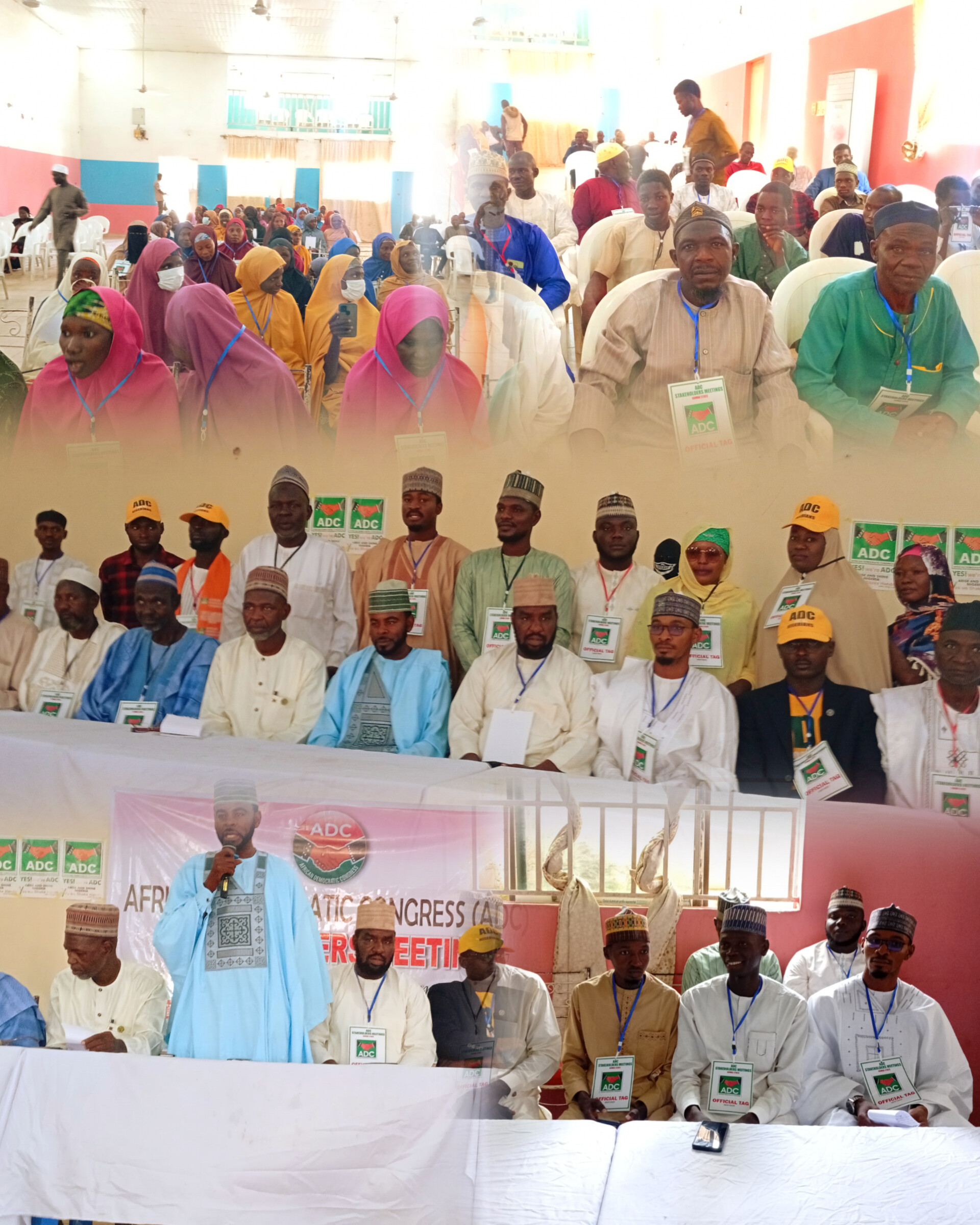
By Our Political Correspondent
The African Democratic Congress (ADC) in Gombe State has reaffirmed its commitment to repositioning the party ahead of the 2027 general elections, as it hosted a high-powered stakeholders meeting aimed at strengthening internal structures, fostering unity, and rallying support across the state.
The meeting, which held in Gombe, brought together state executives, local government and ward leaders, former aspirants, youth and women representatives, as well as members of the growing ADC coalition. Discussions centered around party progress, preparations for future elections, and the need for inclusive leadership rooted in integrity and fairness.
A Call for Unity and Grassroots Mobilization
In his welcome address, the Deputy Chairman of ADC Gombe State, Alhaji Nasiru Lawan, called on party members to embrace unity and support one another for the collective growth of the party. He applauded the coalition of support groups joining ADC nationwide, describing it as a positive sign for Nigerian democracy.
“We are one family, and every member matters,” Lawan stated. “Now is the time for all Gombe residents who believe in fairness and good governance to join ADC and build a better future.”
Executive Commitment Across LGAs and Wards
The Public Relations Officer (PRO) of the party, Dr. Habeeb Muhammad, introduced the full list of state executives, along with leaders from all 11 local government areas and 114 wards of the state. He commended their efforts in spreading the party’s message at the grassroots level and urged them to intensify their efforts in preparation for 2027.
“ADC is the people’s party,” Dr. Habeeb declared. “We are open to new members, decampees, and coalitions. Now is the time to unite and move forward.”
Aspirants and Grassroots Leaders Speak
Representing the eleven local government chairmen, Alhaji Adamu Muhammad Nafada expressed the collective commitment of the LGA leaders to work for the unity and success of the party.
“We are more determined than ever. Our activities of contact and mobilization will continue across all 114 wards in Gombe State,” he assured.
On behalf of ADC aspirants in the 2023 general election, Hon. Buhari Dalhatu, who contested for the Gombe North State House of Assembly seat, praised the party for providing a platform for credible individuals. He promised to continue supporting party activities and called on youths and women to back the ADC’s progressive agenda.
“ADC is the future. Come 2027, we will present candidates with integrity, people who will deliver true dividends of democracy,” Dalhatu said.
Youth and Women Wings Declare Full Support
Comrade Abdulkadir Saidu Digiri, the Youth Leader of the party, emphasized the need for young people to take political participation seriously. He lamented the lack of opportunities for youths in the state and the country due to poor leadership.
“Gombe is blessed with capable youths, but they are jobless because of failed governance. ADC offers a new path,” he said.
The Women Leader of ADC Gombe State, Hajiya Wine Saleh Tima, stated that women remain the backbone of ADC’s support. She cited several wards where women’s mobilization led to victories in previous elections and pledged even stronger participation in 2027.
“Women are 100% behind ADC. With the current coalition, we are confident of winning Gombe and beyond,” she said, while commending the leadership of Malam Danladi Ya’u for steering the party in the right direction.
Chairman Commends Coalition, Promises Inclusive Leadership
In his closing remarks, ADC State Chairman, Malam Danladi Ya’u, expressed satisfaction with the growing support and momentum the party is gaining, particularly through coalitions with like-minded political groups. He reiterated the party’s focus on building a just and equitable society where all citizens have a voice.
“Our goal is not just to win elections but to transform Gombe and Nigeria through visionary leadership,” Ya’u said.
He thanked leaders of the coalition in Gombe, including Barrister Abdullahi Idris (former Minister of Transportation), Air Vice Marshal Adamu Fura, Dr. John Lazarus Yoriyo (former Deputy Governor of Gombe), and Dr. Ahmad Muhammad Gana, among others, for their support in growing the party.
Ya’u concluded by calling on members of other political parties to join the ADC, assuring that under his leadership, the party remains united and committed to fairness, openness, and grassroots development.
-
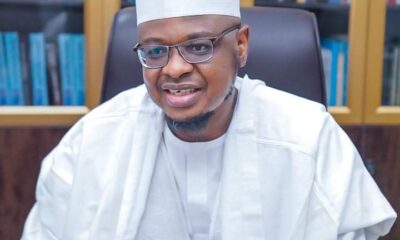
 Leadership12 months ago
Leadership12 months agoBreaking: African Union Appoints Pantami as Co-Chair of the 4th Industrial Revolution Policy Council
-

 Politics1 year ago
Politics1 year agoFormer Gombe State APC Promoters Forum Chairman Attacked Following Political Commentary
-
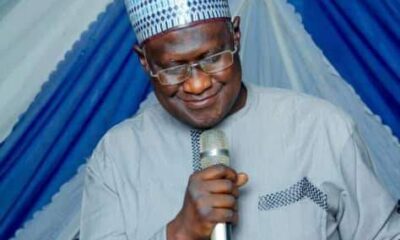
 Appointment10 months ago
Appointment10 months agoGombe State Indigene, Appointed New Vice Chancellor (ATBU)
-
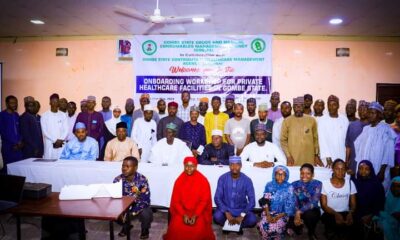
 Health1 year ago
Health1 year agoGombe State Organizes Onboarding Workshop for Private Healthcare Facilities
-
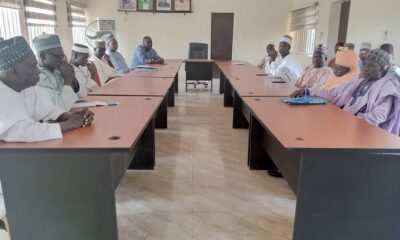
 Water1 year ago
Water1 year agoGombe Government Mobilizes Stakeholders to Combat Illegal Water Connections
-
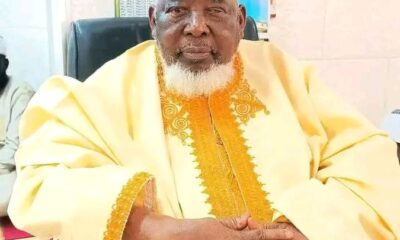
 Death5 months ago
Death5 months agoProminent Nigerian Islamic Scholar, Sheikh Sa’idu Hassan Jingir, Passes Away
-
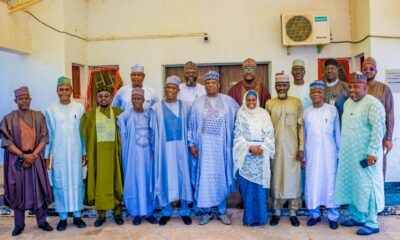
 Politics1 year ago
Politics1 year agoGombe State Inaugurates Human Capital Development Council
-
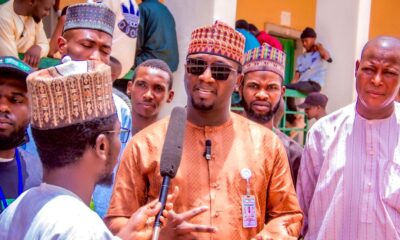
 Politics1 year ago
Politics1 year agoGombe State Launches Presidential Palliative Program (PPP) to Aid Small Businesses
